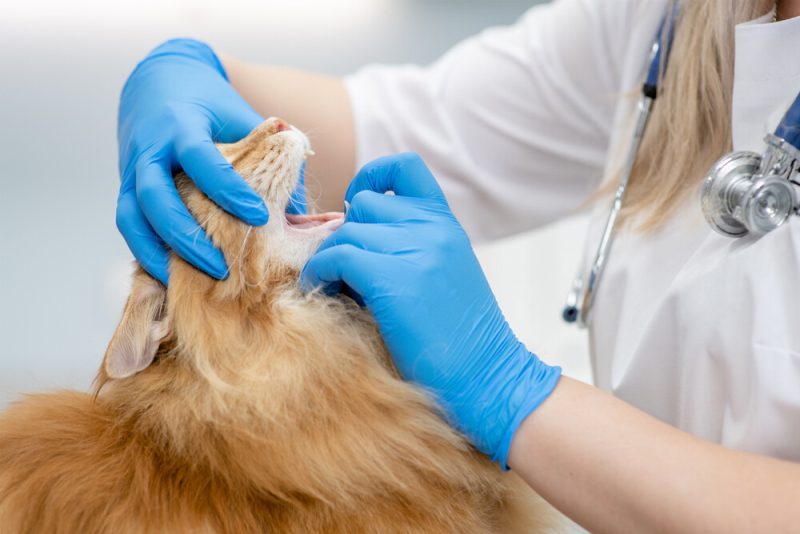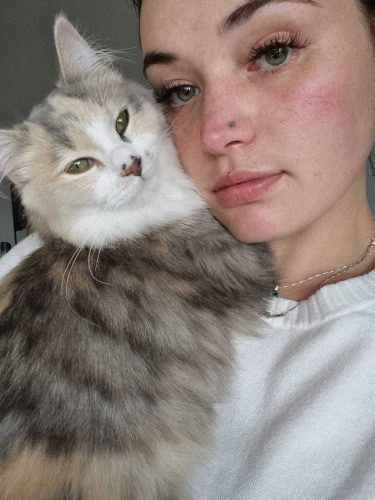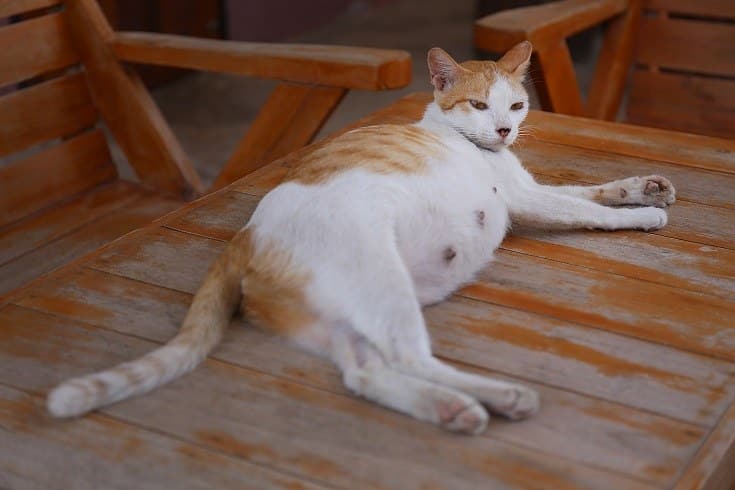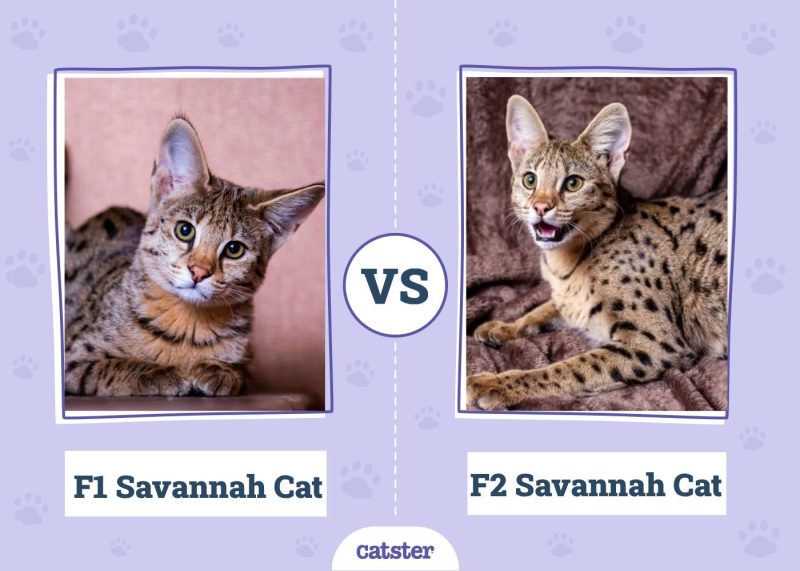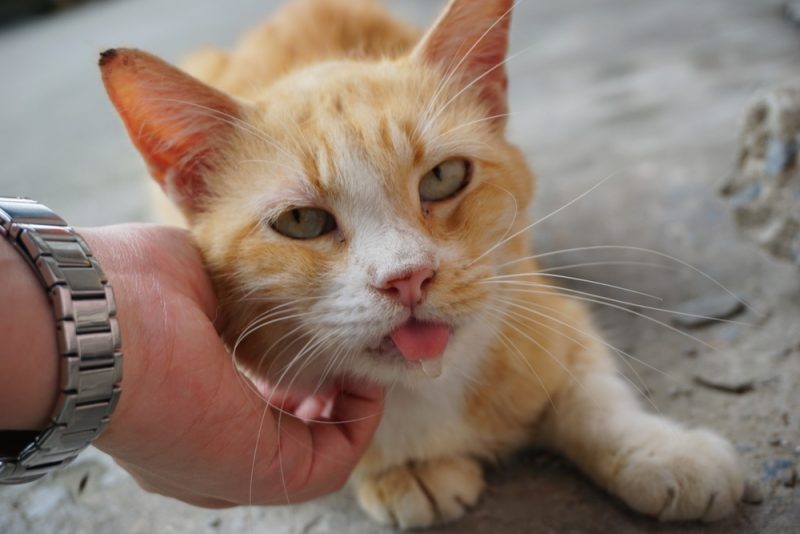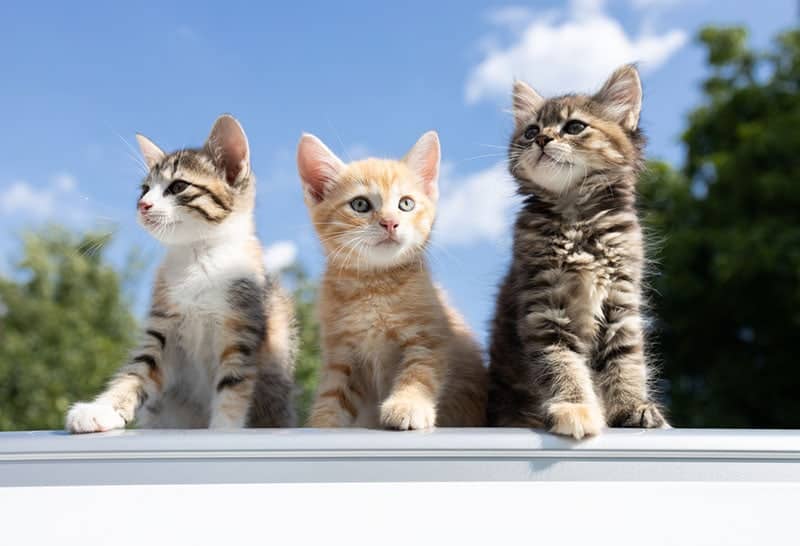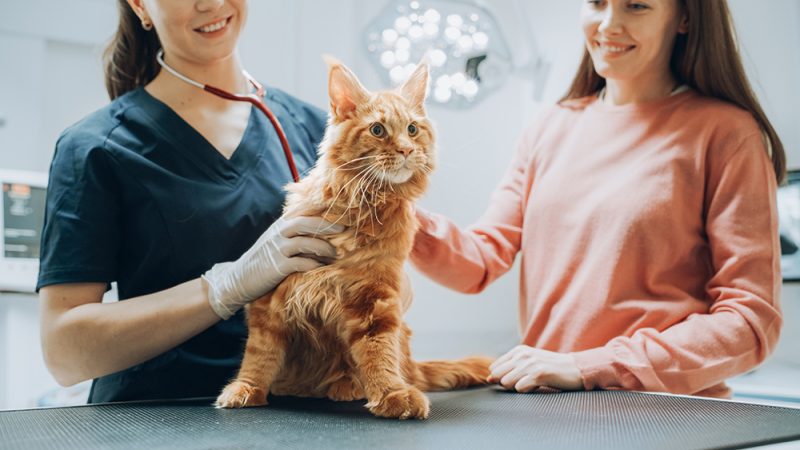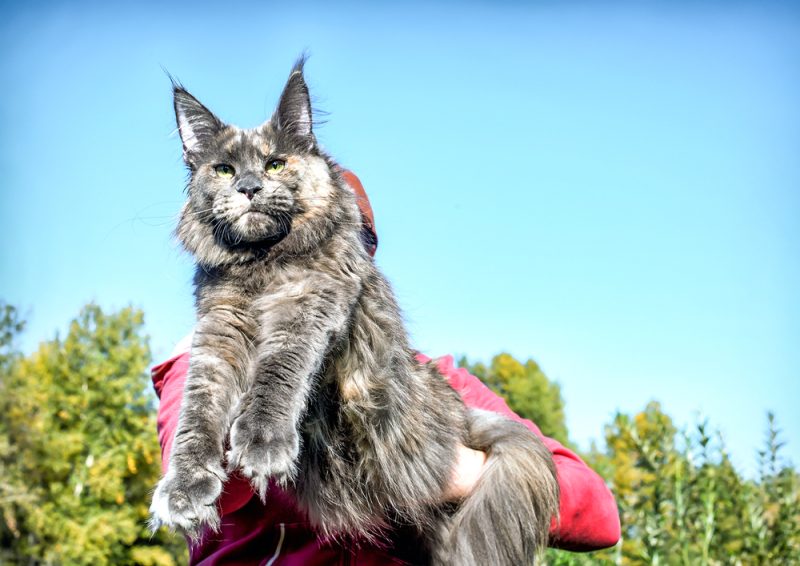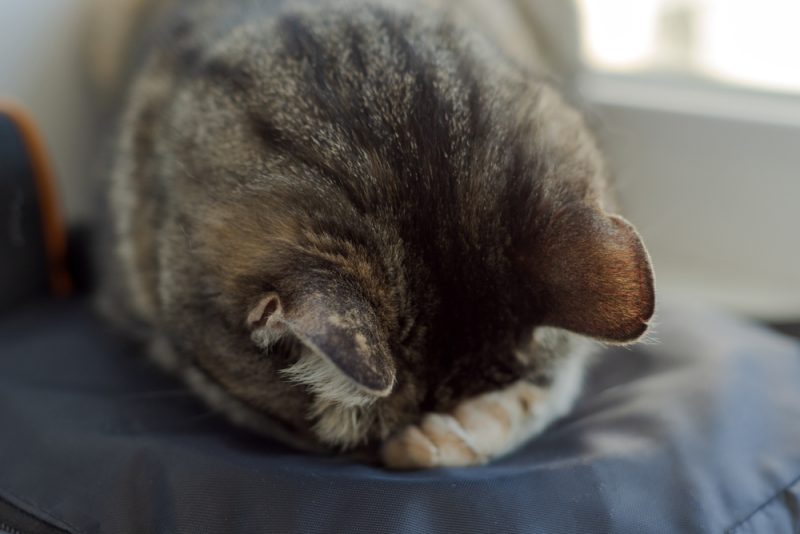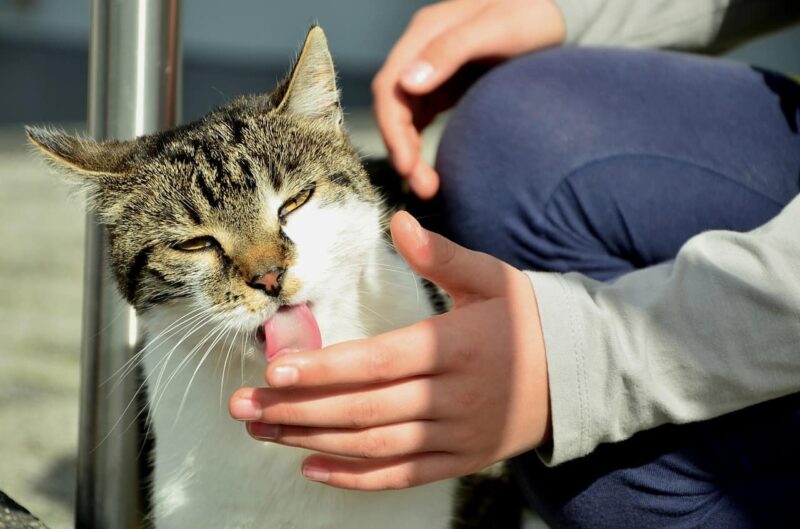If your cat has recently experienced a change in vocalization, swallowing, or a cough, it is possible that they have laryngitis, which is when their voice box becomes inflamed. There are several different causes of laryngitis, some of which can be contagious. Thankfully, we know that you are going to do everything in your power to get your cat back on track! Continue reading to learn more about laryngitis and what a diagnosis means for our cats.

What Is Laryngitis?
Laryngitis is the inflammation of the larynx, an important component of the upper respiratory tract. The larynx, also called the voice box, is responsible for protecting the lower respiratory tract from aspiration of food and fluid during swallowing. Additionally, the larynx is used to generate vocalization.
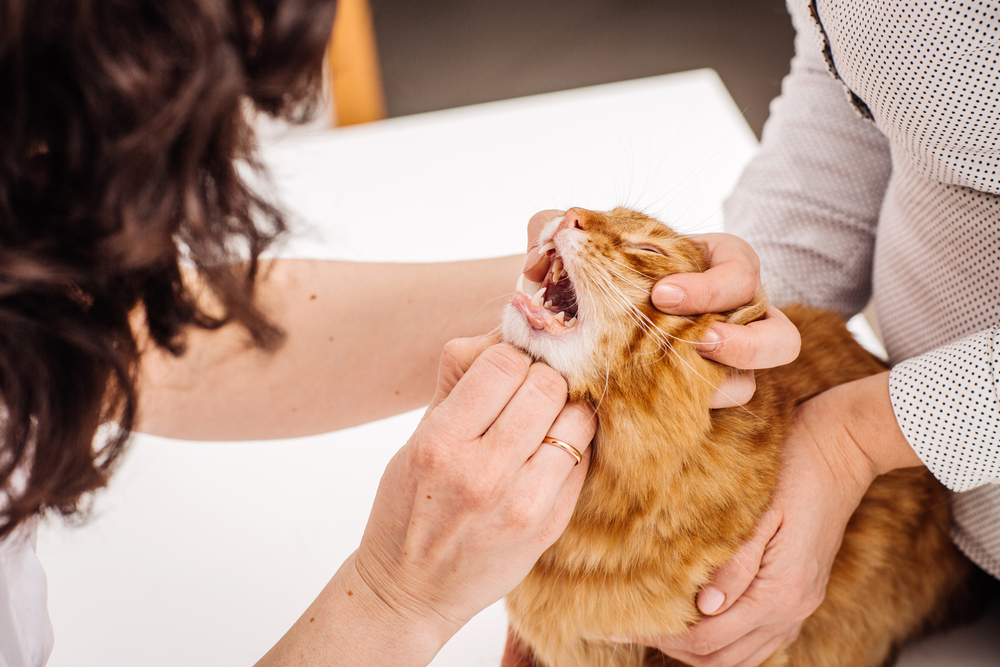
What Causes Laryngitis
There are several causes of laryngitis, and not all causes are contagious. Usually, primary laryngitis occurs without being the result of another illness and is thought to be an inflammatory condition. Primary laryngitis is less common than secondary laryngitis and is more likely to occur in cats than in dogs.
Secondary laryngitis is a sequela to another illness or a primary insult. Examples include foreign bodies, irritation, infection, and potentially even tumor development, among other things.
Infectious agents like herpesvirus, calicivirus, and chlamydia are potential instigators of laryngitis. Due to their highly contagious nature, a cat in close contact with an affected cat could develop clinical signs of illness, including laryngitis.
Signs of Laryngitis
- Coughing
- Difficulty swallowing
- Changes in vocalization
- Gagging
- Choking
- Loud breathing (stridor)
- Decreased appetite
If your cat’s laryngitis is potentially due to an infectious agent, other signs supportive of a cold may be noted. Signs of an upper respiratory infection include a runny nose, ocular discharge, sneezing, and lethargy.
If your pet is showing these signs, we suggest you speak to a vet.
If you need to speak with a vet but can't get to one, head over to PangoVet. It's an online service where you can talk to a vet online and get the advice you need for your pet — all at an affordable price!

Diagnosing Laryngitis
Laryngitis may be suspected based on your pet’s history and physical examination. It can be confirmed through visualization of the larynx. This can be achieved through endoscopic evaluation of the larynx, called laryngoscopy.
Additionally, radiographs may be suggestive of soft tissue thickening around the larynx, which could be supportive of laryngitis. Advanced imaging and tissue sampling can help confirm inflammation of the larynx. If an infectious agent is suspected, PCR testing may reveal the responsible pathogen.
Treatment of Laryngitis
Treatment is focused on reducing inflammation of the larynx. Often, steroids are used to decrease inflammation. On occasion, when a bacterial cause is suspected, antibiotics may be used. In situations where the swelling is severe, debulking and possible tracheostomy may be needed if the airway becomes blocked.
Some veterinarians may recommend diuretics to help reduce the fluid accumulation occurring around and in the larynx. Pain control is important. If steroids do not bring relief, additional medications may be warranted. Adequate pain control can help to facilitate improvement in appetite.
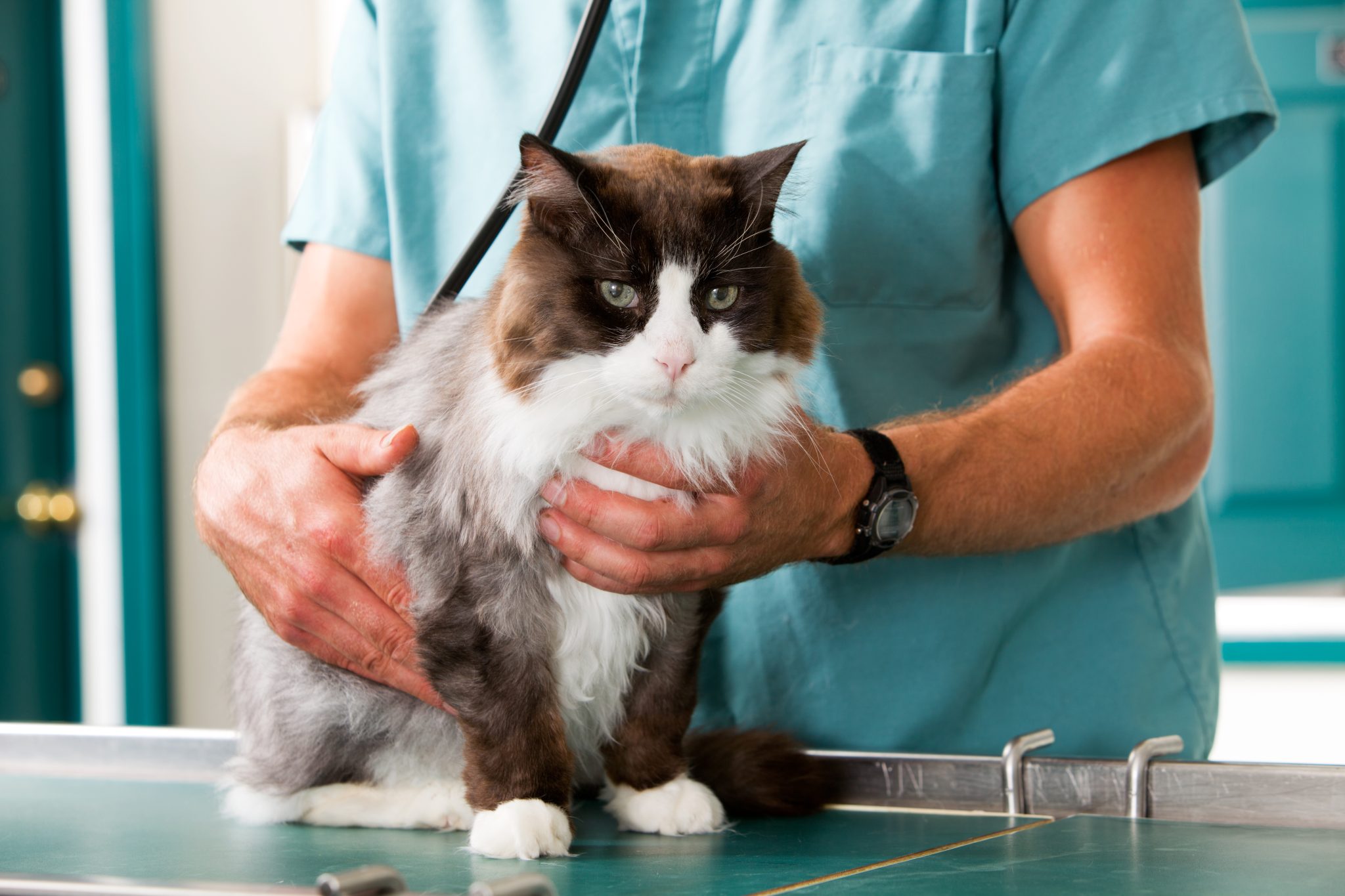
Supporting Your Cat With Laryngitis
Cats that are struggling with laryngitis should be closely monitored for worsening of their clinical signs. Additionally, if an underlying cause has not been identified, it may be beneficial to keep your cat isolated from others if they are considered contagious.
Avoid different stimuli that could exacerbate signs of laryngitis through irritation to the upper airway, including exercise, aerosols, or other chemicals.
Cats may be more inclined to eat canned or wet food while battling laryngitis, as it is easier to swallow. Owners may want to consider adding a humidifier to the room in which the cat stays during treatment.

In Summary
Yes, some causes of laryngitis can be contagious. Determining if your cat is contagious or not will require additional diagnostics and a detailed history. Mild cases of laryngitis can be self-limiting, whereas other causes, like a foreign body or tumor, have an overall poorer prognosis and will require interventions. Closely monitoring your cat for signs of worsening is important, and care should be taken to avoid situations that may exacerbate signs.
Featured Image Credit: Ermolaev Alexander, Shutterstock
